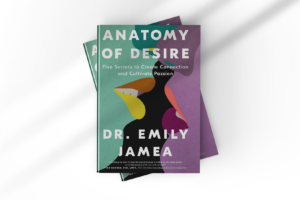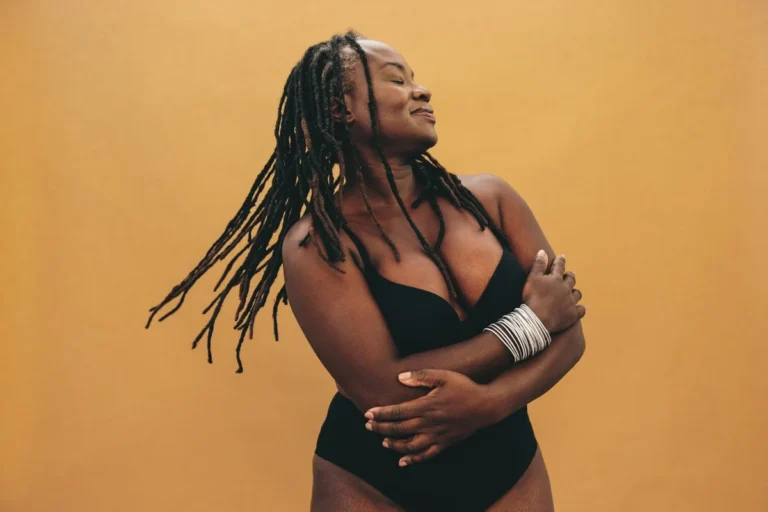
Great Day Colorado: Therapist Dr. Emily Jamea stops by GDC to showcase new book ‘The Anatomy of Desire’
If you’re in a relationship, we know it can come

There’s a comedy skit online featuring Tina Fey, Amy Schumer, Julia Louis-Dreyfus and Patricia Arquette joking about how Hollywood determines the age when a woman is no longer, ahem, sexually desirable (although, let’s just say that the word they use in the skit is a little cruder than that).
The idea is nothing new, but the sketch brings to light ageism and the completely unachievable beauty standards that are linked to sexuality and reinforced and spread by the media.
Thanks to Hollywood, social media, and porn, many are left thinking that sexuality is only meant for young, stretchmark-free and able-bodied people.
I’m here to bust that myth.
Body image, what you think about your physical appearance, has a profound impact on various aspects of life, including emotional well-being, self-esteem and interpersonal relationships. The link between body image and sexuality is one of the most impactful as it broadly shapes how we perceive ourselves as sexual beings and influences our experiences of intimacy across many domains.
Body image isn’t confined to aesthetics; it’s intricately woven into your entire self-concept. How you view your body influences your self-worth, confidence and mental health. I always say that our sexuality is inextricably linked to our individuality. Therefore, anything that affects your sense of self is going to inform the way you feel about yourself sexually. When it comes to sexual desire, a positive body image can encourage an individual to embrace their sensuality and engage in intimate experiences with enthusiasm. A negative body image, on the other hand, can lead to feelings of insecurity, shame and anxiety, which can hinder the ability to fully enjoy and engage in sexual activity.
The entertainment industry often reflects narrow and unrealistic standards of beauty, which creates an environment where people feel like they have to match an idealized appearance. These standards can shape perceptions of what counts as an attractive body, leading to comparisons and self-criticism. The pressure to conform to these ideals can significantly affect your body image and, as a result, influence sexual desire. Rarely does the media show older adults engaging in erotic connection, which leaves many people feeling like sex is not part of life after a certain age.
Porn is perhaps one of the biggest offenders of body image and sex, portraying borderline caricatures of normal human bodies. The promotion of unattainable beauty ideals can foster feelings of inadequacy. Being preoccupied with worries about your appearance can create a barrier between you and your ability to fully engage in and enjoy intimate moments.
A positive body image can contribute to a healthier sense of sexual desire and satisfaction. When you feel comfortable and confident in your body, you’re more likely to communicate openly with your partner about your desires and boundaries. This transparency can lead to a more fulfilling sexual experience for both partners, as you work together to create an environment of trust and mutual understanding.
On the other hand, a negative body image can introduce challenges to intimacy. You may avoid certain sexual activities or positions due to discomfort with your appearance. Feelings of self-consciousness or shame can diminish the ability to be present in the moment and fully enjoy the experience. This phenomenon, referred to as “spectatoring,” happens when you feels as though you’re looking at yourself from the outside in as opposed to feeling fully immersed in the experience.
To read the rest of the article, visit HealthyWomen.org.

If you’re in a relationship, we know it can come

Not quite at it like rabbits? From trying to be

Emily Jamea, Ph.D., is a sex therapist, author and podcast host. You